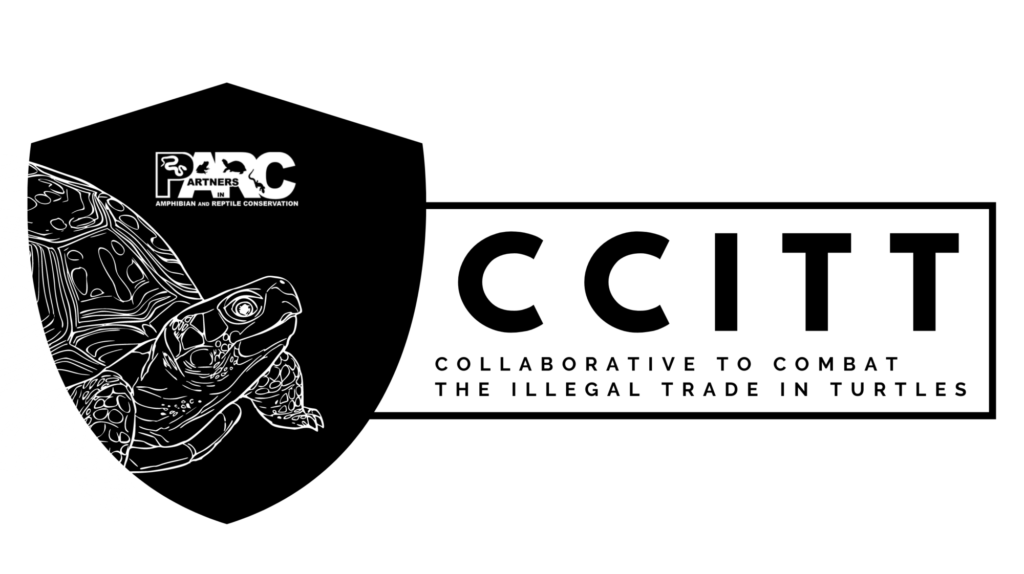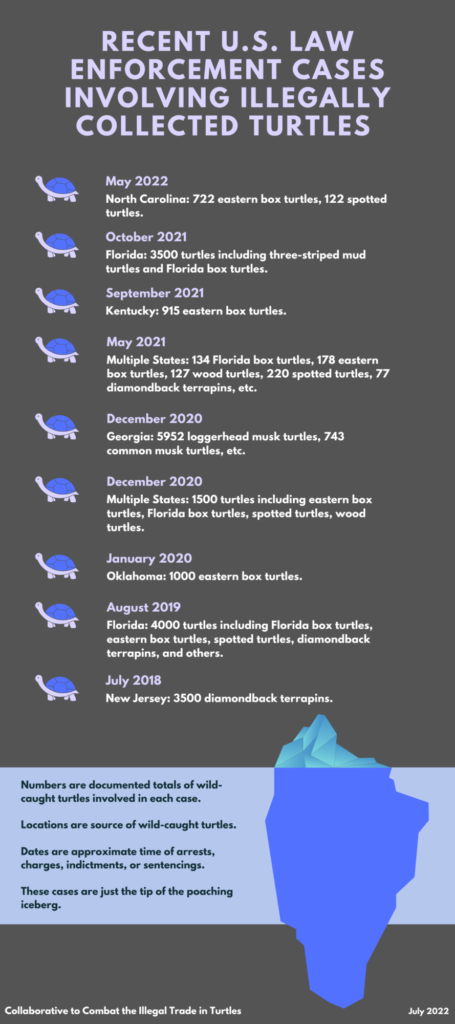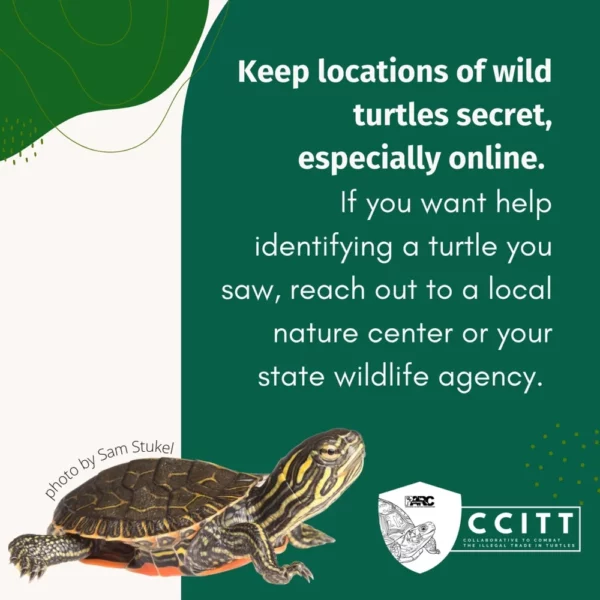

A Conservation Crisis is Unfolding in our Backyards
North America’s wild turtles are under threat from poaching and illegal trade. State and federal law enforcement officials and conservation biologists consider the illegal collection of turtles to be a conservation crisis occurring at an international scale.
While wildlife trafficking is a global problem that impacts many species, an unfortunate confluence of factors makes poaching and the illegal trade of turtles a particularly troublesome issue. High demand from both overseas and domestic markets, coupled with life history characteristics (adults must reproduce for decades just to successfully replace themselves and keep populations stable) make wild turtle populations highly at risk to immediate and irreversible declines. The illegal collection of turtles directly undercuts investments by natural resource agencies to conserve vulnerable species and to keep common species common.
Many Confiscations Involve Hundreds or Thousands of Wild Turtles
What we know about illegally trafficked turtles is just the tip of the iceberg. Through examination of U.S. Department of Justice releases, bulletins, media articles, and other accessible literature, Easter et al. (2023) identified 54 known cases of illegal trade in the United States occurring between 1998 and 2021 involving the illegal trade of at least 24,000 freshwater turtles of 34 different species. Trade occurred in at least 43 U.S. states and six countries, including Canada. Box turtles (Terrapene spp.) were the most commonly reported turtles involved in these cases, followed by spotted turtles (Clemmys guttata).
Working Together to Save Our Wild Turtles
The Collaborative to Combat the Illegal Trade in Turtles (CCITT) was formed in 2018 with the mission of advancing efforts to better understand, prevent, and eliminate the illegal collection and trade of North America’s native turtles. The CCITT strives to build a cross-disciplinary and multi-sectoral network of conservation professionals dedicated to addressing the challenges that stem from illegal collection and trade. Our membership is composed of wildlife law enforcement, biologists, legal experts, social scientists, communication experts, and other professionals.
In 2020, CCITT joined with PARC’s Turtle Network Team to maximize our ability to achieve the mission of the group. The group has increased awareness of illegal trade in turtles nationally which has resulted in more resources being dedicated to law enforcement, stronger regulations, and confiscation response and repatriation (returning animals back to the wild).
CCITT has several working groups focusing on topics relating to:
- Confiscation and Repatriation
- Research and Data
- Human Dimensions and Communication
- Law Enforcement
- Regulatory and Judiciary
A Call to Action
On May 23, 2020, World Turtle Day, CCITT partnered with other conservation organizations to release the Call to Action Letter to Protect North America’s Native Turtles from Illegal Collection. The letter laid out why this is such a critical issue and provides five focused areas that require action:
- Coordinate state regulations to help address current conservation risks to these species.
- Provide additional resources for wildlife law enforcement to prevent illegal collection and trafficking.
- Enhance public outreach that communicates the severity and scale of the crisis and works towards eliminating national and international demand for wild-collected turtles.
- Increase resources for emergency housing and care of confiscated turtles to relieve strain on law enforcement organizations.
- Implement science-based planning to guide temporary and final disposition of confiscated turtles.
Media and Outreach
To help increase knowledge on the illegal trade, we have put together a Media and Resource page. For outreach information, check out out our #EveryTurtleCounts and #WildTurtleWeek pages for materials relating to turtles and how to help.

Questions?
Many questions relating to CCITT membership can be found on our Frequently Asked Membership Question page. For more information on the CCITT, including opportunities to partner with us, or to request an application to join, please contact: ccitt.leadership.board@gmail.com
Mike Ravesi- CCITT Co-Chair
Connecticut Department of Energy and Environmental Protection
Report suspicious activity
If you suspect someone is illegally collecting or selling wild turtles, call the U.S. Fish and Wildlife Service’s tip line (1–844-FWS-TIPS) or consult this webpage to find your state wildlife agency’s law enforcement phone number. The US. Fish and Wildlife Service is authorized to pay rewards for information or assistance that leads to an arrest, a criminal conviction, civil penalty assessment, or forfeiture of seized property. Learn more about what to look for.

